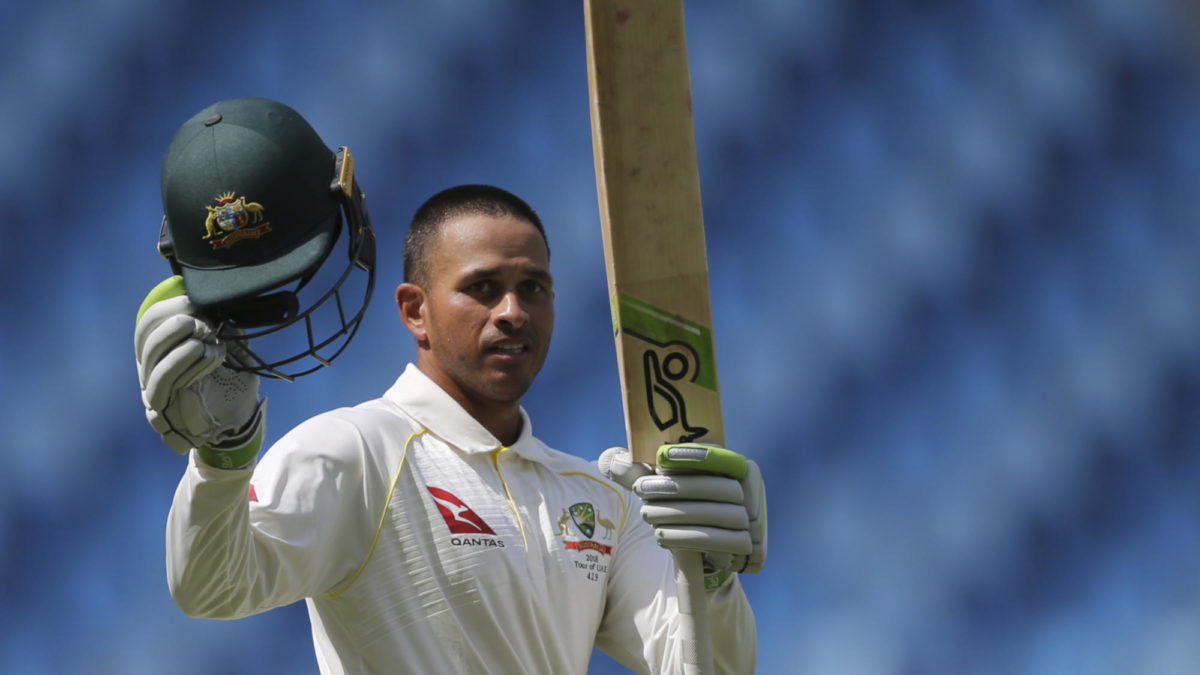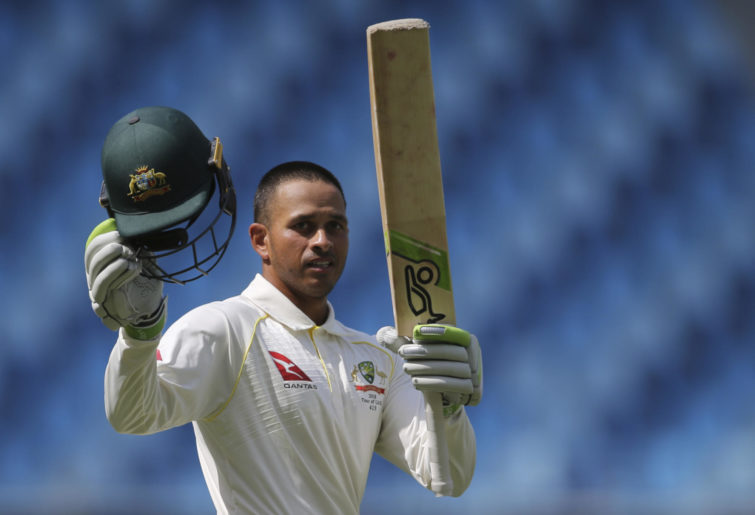
Usman Khawaja insists his maiden Test in his country of birth is ‘just another game of cricket’, as the Australian star prepares to open the batting in their first Test in Pakistan for 24 years.
Born barely a stone’s throw from the venue of the first Test of the series in Rawalpindi, the 35-year old returns to the country he and his family left three decades ago to come to Australia as a proud husband, father and – most recently of all – member of the Aussie top order once again.
Fairytale though it might be, Khawaja isn’t getting ahead of himself, saying on Monday he’s keeping a lid on his emotions ahead of the series, which starts on Friday, March 4, and plans to enjoy the second phase of a Test career that seemed over just three months ago.
“Any Test match, any game, is just another match, it’s just a game of cricket,” Khawaja said.
“I’ve played for such a long time now. I’ve been out of the team, I’m back in the team; every game for me now for Australia is just a bonus.
“I’m not out here to prove anyone different; I’ve got a beautiful family back home, I’ve got a lot of things that are great in my life that’s not cricket-related.
“The fact that I’m playing in Pakistan is special, don’t get me wrong. It’s something I’ve always wanted to do; I grew up down the road.
“There is that bit of sentiment definitely, but once the game starts you don’t really think about that stuff.
“I’m sure I’ll look back on it and think ‘that’s pretty cool’ – to play the first tour of Pakistan after so many years, being born in Pakistan, as fate would have it everything’s worked out – touch wood that I don’t hurt myself before the Test match!
“Things have worked out really well, but it’s hard to be too reminiscent at the time because you’ve still got to be ready to play a game of cricket and be in the moment.”
While Australia’s strict security and COVID bubbles will prevent Khawaja from meeting any family during the tour, he expects a warm welcome from the Rawalpindi crowd when he walks out to bat – though he admits his teammates might not be as generously received.
“I’ve got a lot of support here in Pakistan always. I think they’ll support me, they’ll hope I get runs, but they’ll be hoping Australia get smashed at the same time!” Khawaja laughed.
“It’s going to be one of those Catch-22s. It’s pretty special.”
“I know where the Rawalpindi ground is, I’ve got a couple of photos from when I was younger at the old Rawalpindi ground.
“It holds a special spot in my heart. Being born here, I think it’s going to be pretty cool walking out there, playing in the game.
“But I don’t expect a hostile crowd. Pakistanis love their cricket, and they appreciate good cricket, and I think that’s what they’d be hoping for.”

Usman Khawaja needs to head to the top of the order. (AP Photo/Kamran Jebreili)
Australia’s recent history on the subcontinent makes for grim reading: they’ve won just once in Asia since 2011, when a 12-wicket haul from Stephen O’Keefe secured a stunning victory on a Pune dustbowl in 2017.
The batting order, and Khawaja in particular, became infamous for poor results against spin; but the left-hander points to recent Test series in Pakistan to suggest their Achilles heel may not be as prevalent this time around.
“Playing in Rawalpindi, looking from the past it’s been quite a fast bowler-friendly wicket. Whether or not we get that this time, we’ll wait and see,” Khawaja said.
“We’re not 100 per cent sure what the wicket’s going to be like, we haven’t seen it yet… [but] when you look at other subcontinental countries, Sri Lanka, Bangladesh, India, spin is quite dominant.
“Pakistan’s always produced some really good fast bowlers, so it makes sense that the wickets are conducive to fast bowling in some respects.”
Despite his reputation, perhaps Khawaja’s finest ever innings came in turning conditions: defying a full-strength Pakistan attack in Dubai for nearly nine hours en route to a match-saving 141 in 2018.
The Queensland captain isn’t thinking that far back, though, saying putting his subcontinent struggles and triumphs aside has been a key part of his preparation for the tour.
“I don’t want to live in the past too much, it was a few years ago,” Khawaja said.
“I try to stay quite present. I’m really enjoying my cricket at the moment, I’m loving playing Test cricket, I’m loving playing for Queensland back at home.
“I’m in a really good spot; it’s just another game for me.
“I haven’t been successful in the subcontinent before, in both red-ball and white-ball cricket for Australia. For me, I wasn’t too hung up on that, just making sure I was ready if I got the chance.”